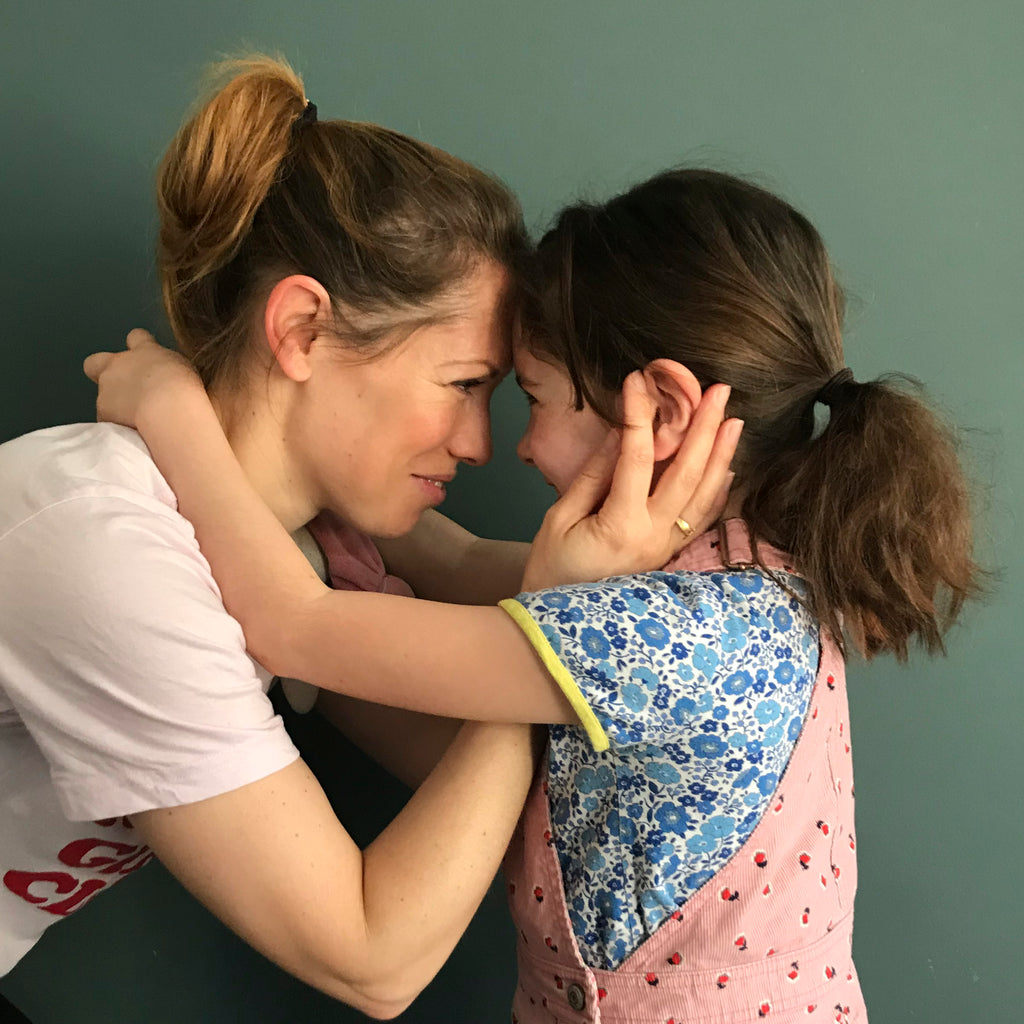How I encourage more meaningful conversations with my kids

How to have more meaningful conversations with my children is something that's on my mind a lot. There is a growing recognition of the importance in helping young children begin to understand and discuss emotions and how this can, in turn, help develop a greater sense of self and enhance their social awareness.
Whilst we might all recognise the value in talking to our kids and creating an open environment in which to do so, everyday life so often gets in the way. Reducing the time or opportunity for any meaningful interaction. It can feel daunting to tackle something as big and important as your child’s emotions and perhaps the biggest challenge is knowing where to start.
I found myself in exactly this situation – overwhelmed by a work/life balancing act, starring two (now 3!) wonderful and exhausting kids. Worried about how little I was actually talking to them (rather than simply barking instructions.) I felt compelled to try and change things. To create something (a prop I guess), that could be used to begin conversations and encourage some thinking and talking. Based around everyday life but from a slightly different perspective. And so I developed an Alphabet of Emotions - an A to Z of positive feelings featuring illustrations of animals with attitude!
We began by taking a letter a night, thinking about the feelings it evoked, and then talking about it in the context of the school day. It’s been a brilliant way for us to get the most from the limited time we get each evening. It’s now become part of the evening routine with my eldest in those last quiet minutes before bed. Some nights obviously work better than others (and some nights just don’t work at all!) I learned more about my daughter’s school life in those first few weeks of doing this than I had all year.
There are a few things I’ve found really help us make the most of our time together;
Give them your full attention
- Whether it’s 2 minutes or 20. I’ve found this hands down the most important thing to remember. When your mind is spinning with work, checking your phone and generally thinking three steps ahead, it’s really easy to zone out.
- Being patient, attentive and really listening are all the things I find myself continually banging on about to them but am admittedly pretty rubbish at myself.
- Giving them your undivided attention – being present, focussed and in the moment. Creates an openness and sense of importance that seems to clear the way for them to express themselves.
Make it a two-way conversation
- Knowing that someone else feels like you, or has been through something similar, can be hugely reassuring. My daughter often seems surprised when I explain how I too sometimes feel nervous or anxious, and that it’s not something only she’s experiencing.
- Sharing and empathising in this way has helped forge a sense of solidarity between us. It has also encouraged us to talk about all manner of things, from classroom memories to office dramas and a lot more besides!
Switch the perspective
- It doesn’t have to start with, or be about, them. Sometimes changing the dynamic has proved an easier way to get a conversation going.
- Thinking about how others behave and how they might feel also helps develop a sense of social awareness. The ability to put yourself in someone else’s shoes is such a powerful skill to learn.
Get creative
- When things have felt forced or tired we’ve tried to mix it up. Using my positivity flashcards we’ve taken to the whiteboard, shuffled the pack and picked an emotion to explore.
- They’ve loved playing teacher and leading the brainstorm. Writing about whatever comes to mind when they think about the emotion or attitude on the card.
- It’s also covered off reading and writing practice which is an added bonus!
Appreciation for the small things
- We can be quick to praise the big achievements. However it’s often the everyday stuff such as listening and patience, helping and sharing that can be great opportunities to show appreciation.
- I try and make a real point now of reinforcing these positive behaviours. Taking the time to single them out is a great way to show their value. They also seem more inclined to try and repeat it if they know it’s caught my attention!
My relationships with my kids are a work in progress but this has really helped us to explore their feelings and emotions in a positive way. It certainly sparked some meaningful conversations which I believe to be really beneficial to them, as well as to me.
It’s something we’re determined to keep up and I hope there’s something here to inspire you too.


Leave a comment